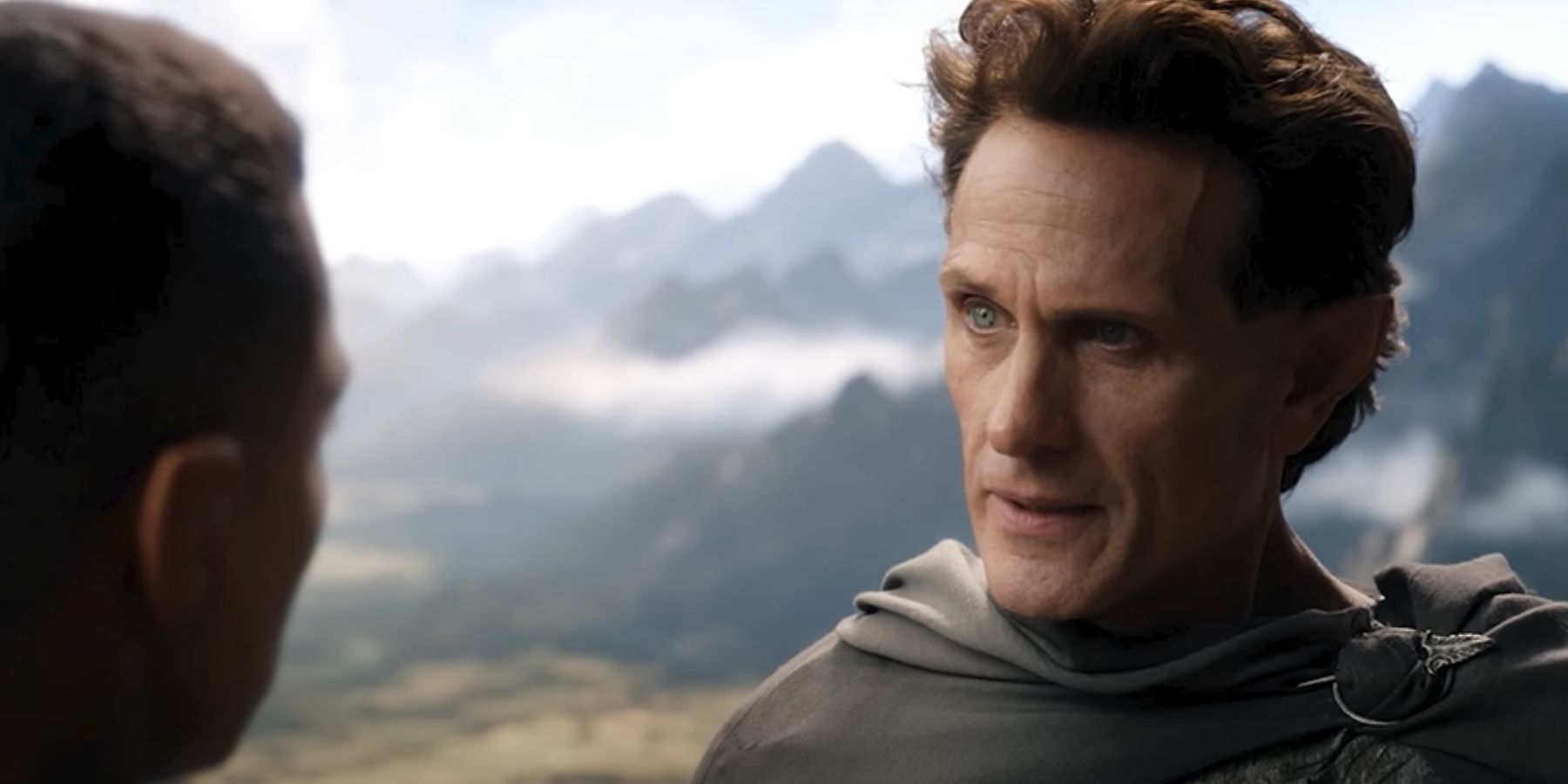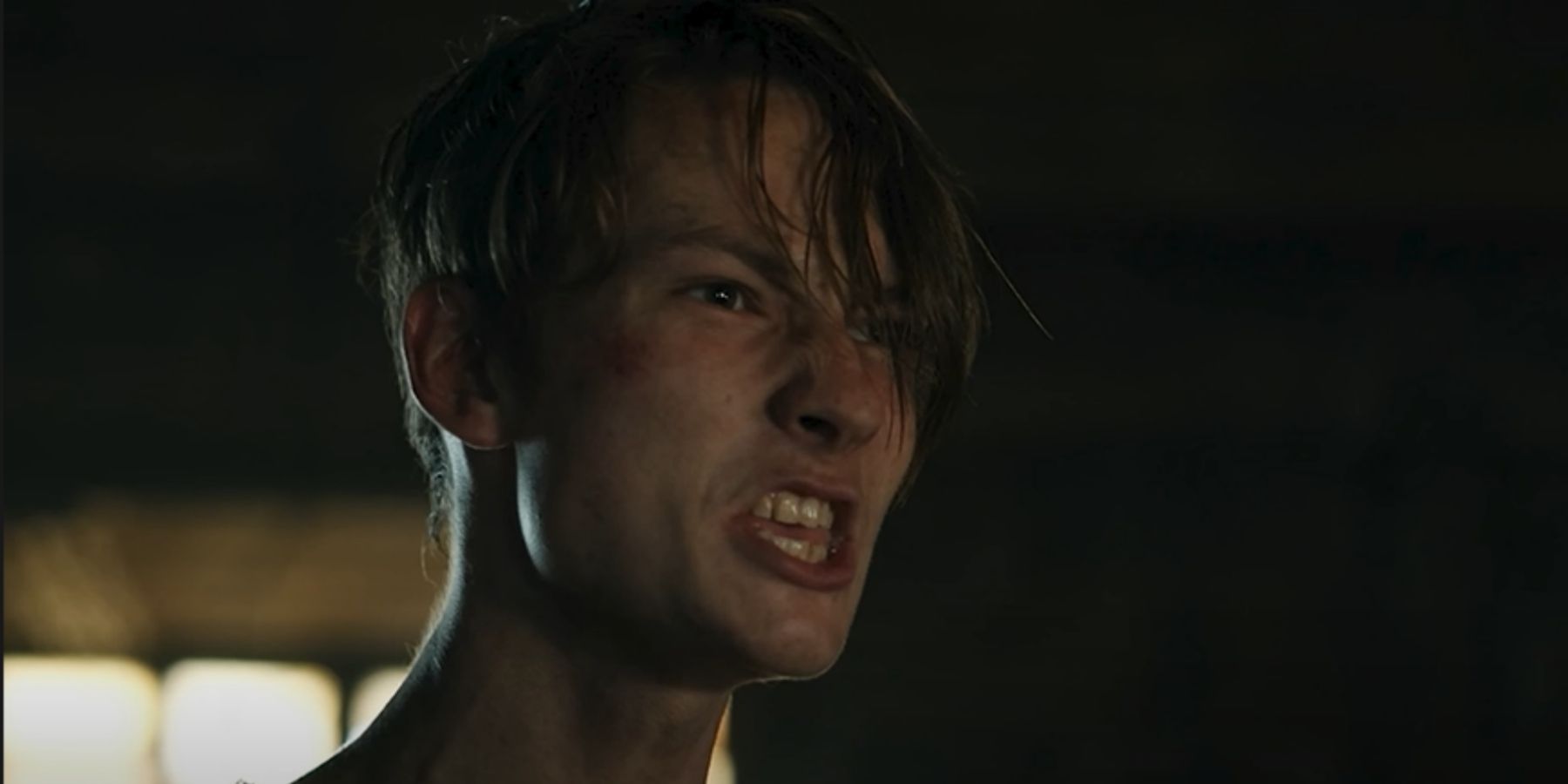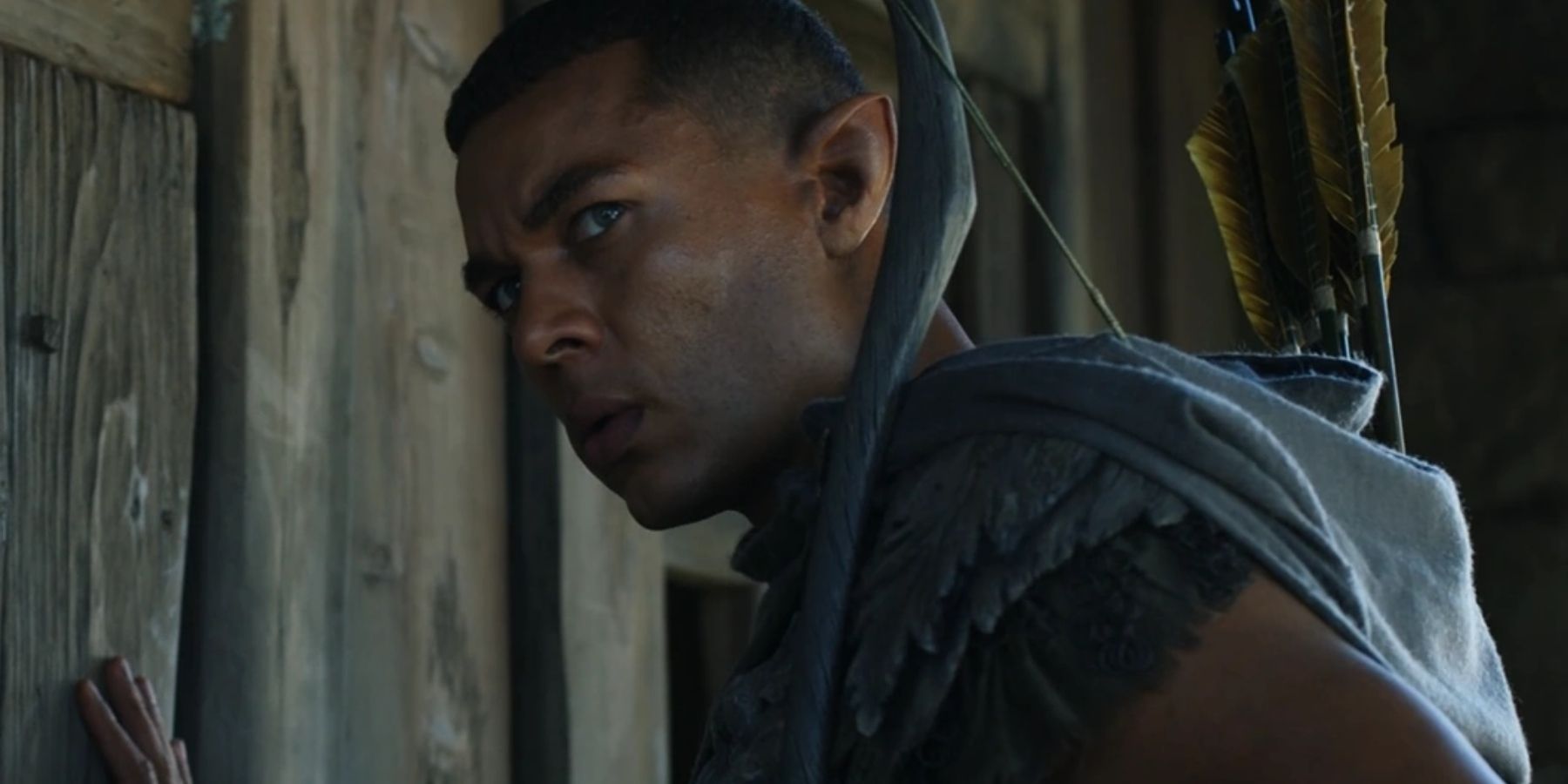The Rings of Power series has already introduced its audience to a whole range of power imbalances across the lands. Such conflicts range from the Numenorian hatred of elves despite a peace that once existed between them, to the fear that lowly harfoots have of of anyone outside their small world. But one of the most pressing and problematic of all the races struggling with their rule in the recent Amazon show is the people of the Southlands, and their oppression at the hands of the elves. This is one of the first times in any Tolkien adaptation that the race of elves have been portrayed in a less than savory light. There is an interesting dynamic already emerging with the Southlanders, who appear, at first glance, to be being punished for sins that were committed by their ancestors thousands of years ago.
The systemic subjugation of any one race of beings by another is a dangerous and unjust occurrence. Such a dynamic is bound to cause tension between the two, especially when the oppressed peoples begin to grow in number and decide that it’s time to rise up against their captors, and claim what was once theirs back again. It is unusual for the Rings of Power to frame the elves as the ones in the wrong, and the humans as the ones who are fighting for freedom and survival under a cruel reign. However, this presents plenty of interesting opportunities for main characters such as Arondir, Bronwyn, and her son Theo. Theo has already been shown to possess a shard of Sauron’s fatal blade, and there is a subtle hint that he may try to use it to stand up against the elves and emancipate his kin from their control. But will he become corrupted in the process?
One of the biggest problems of the elves being asked to stand guard over the Southlands, and check every move that the people make, is that it creates a paradox of cause and effect. The elves believe that when the time comes, the Southlanders will side with the enemy, just as their ancestors once chose to stand with Morgoth, which had devastating consequences for Middle Earth. In order to prevent this possibility, the elves have suppressed the peoples of Harad and surrounding lands. They prevented them from growing, thriving and cultivating their own peace.
The people of the Southlands, therefore, hate the elves, and feel that they are being unfairly mistreated due to a mistake that was made by their forebears generations ago. They despise the elves so much, that if the opportunity arises, it seems likely that they would indeed stand with an enemy against the elves, in order to liberate themselves from the elven tyranny. Thus, the elves would have directly caused the rebellion that they are trying to snuff out.
This tension is epitomized in the early scene with Arondir, in which he goes into the village tavern to investigate a poisoning that has appeared in some of the nearby lands, and is making the animals sick. As soon as he enters the space, it is clear that he is unwelcome, and that his presence is only tolerated because the people have no choice. This is too much for one of the young men, who snaps:
“Let it go, knife ears! It’s just a patch of grass! The lot you lump us in with died off a thousand years ago. When are you people going to let the past go? […] One day, our true king will return, and pry us right out from under your pointy boots.”
From the insulting use ‘knife ears’ as a derogatory term for the elves, to the insinuation of being ‘under your boots,’ it is clear that the people of the south have had enough of the elves. They are on the verge of breaking point, and that is very dangerous considering that Sauron is also on the verge of rising to power once more. The Southlanders have been mistreated and mistrusted for so long that there will undoubtedly be many among them who choose to stand with any enemy of the elves, just to be free of their domination.
The other problem with the elven rule of the Southland is that for them, it has been the blink of an eye, but for the people of Harad and its surrounding areas it has been centuries. Elves don’t have the same relation to time as men, and so for them, the betrayal of their ancestors is a fresh memory. Even so, it is never justifiable for a race of people to be continually punished for something that happened long before they were born. However, according to the elves, there is more to it than that. The Watch Warden assures Arondir:
“Mark this, Arondir, for 79 years you have kept watch over the men and women of Harad, not because of what their ancestors once did, but because of who they still are. Be grateful that you need never see them again.”
He believes that “the blood of those who stood with Morgoth still darkens their veins,” and if the elves keep up their suppression, he just may prove himself to be right.



